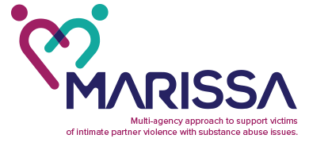marissa
RESULTS
In this section you will find the main outputs produced in the framework of MARISSA.
1.
In this document you can find the review of existing literature on co-occurrence of IPV and PSU, as well as a review on the existing interventions, tools, methods, material, and practices in Europe and beyond, regarding multi-agency cooperation between IPV and PSU organisations.
2.
In this document you can read about the results emerged from Focus Groups activities conducted with professionals in IPV & PSU in Greece, Estonia, and Iceland. The focus groups were aimed at identifying the knowledge, needs and challenges that professionals face in their work when there is co-occurrence of IPV victimization & PSU
3.
The Needs Assessment Report describes the existing context and the key findings on the needs and challenges of professionals in IPV & PSU. This document includes the key findings that derived from MARISSA project’s research, namely the review, the country reports and the focus groups; setting the base for changes at professionals’, services’ and policy level.
4.
These are the Policy Recommendations in the field of co-occurrence of IPV and PSU developed by MARISSA at the national level of the Project Partners and at the European level. The aim of these Policy Recommendations is to ameliorate the support for women survivors of IPV with co-occurring PSU problems and facilitate multi-agency cooperation in the field.
5.
This Training Manual is addressed to professionals working in IPV & PSU and is focused on their capacity building. The Manual contains: Information on IPV and PSU, Information on gender, power and its connection to IPV and PSU, Information on IPV victimization and PSU correlation, Screening, Risk Assessment, and Referrals, Parallel/Mutual Interventions and Follow Up. The Manual is available in English, Greek, Estonian and Icelandic
6.
The Intervention Tools are based on the multi-agency collaboration approach for the treatment of women survivors of IPV and with PSU problems. They include a screening tool for professionals, to facilitate them identify the co-occurrence of IPV victimization and PSU, a risk assessment questionnaire, a referral form template and a follow-up form template. The Intervention tools are available in English, Greek, Estonian and Icelandic.
7.
The Impact Assessment Report includes a section on how future evaluations could be conducted to assess the long-term effects of the intervention. It describes in detail the exploitation steps both at national level at project countries and at non project areas at local or national level.
8.
The Replication Guidelines cover the critical recommendations on how to implement the educational material and tools of the project and were produced to facilitate entities in partner countries and beyond to replicate project activities.
